Photographs: Sahil Salvi/Rediff.com
The intelligence agencies and police teams from India, Bangladesh and Sri Lanka deserve to be complimented for the effective and coordinated manner in which they managed to maintain security and thwart planned acts of terrorism during the nearly two-month period during which they hosted the matches of the cricket World Cup tournament.
The terrorists based in the Af-Pak region were not without plans to disrupt the matches, but their plans were detected and neutralised in time by prompt intelligence and effective physical security. The role played by the intelligence agencies of the United States and other countries in collecting whatever preventive intelligence they can and sharing it with their counterparts in the three countries needs to be acknowledged and applauded.
...
'Octopus of jihadi terrorism live and kicking'
Image: People protest the killing of Pakistani Minister for Minorities Shahbaz Bhatti during a demonstration in LahorePhotographs: Reuters
This should be evident from the assassinations of Pakistan's Punjab Governor Salman Taseer and Minister for Minority Affairs Shabaz Bhatti, and the two unsuccessful attempts to kill Maulana Fazlur Rahman, the amir of the Jamiat-ul-Ulema Islam Pakistan.
Taseer and Bhatti were killed brutally because of their opposition to the blasphemy laws. Rahman was believed to have been targetted for suggesting a re-look at the most obnoxious provisions of the law.
'Extremism spreading wildly in Afghanistan'
Image: Afghans chant anti-American slogans during a demonstration to condemn the burning of the QuranPhotographs: Reuters
This has been followed by violent incidents in Kandahar over the same issue on April 2.
'Don't get blinded by Mohali meet'
Image: Dr Singh and Gilani at the Mohali stadiumThe octopuses of terrorism have many hiding places in Pakistan from which they can strike at India. They are bound to strike India sooner or later to convince their followers that the anti-India jihad has to be continued until final victory -- let Mohali be damned.
'Post-WC euphoria is natural, but security agencies should not slack'
Image: People celebrate after India's WC winPhotographs: Reuters
The post-World Cup euphoria is natural among the general populace, but it should not lead to a slackening of vigilance by the intelligence and security agencies, including the police. In fact, there is a need for even greater vigilance today than ever before.
How to keep the carefully-calibrated re-engagement process initiated by our prime minister moving forward without slackening our vigilance and determination to fight terrorists operating from Pakistani territory? That is a question to be constantly addressed by the political leadership and the security bureaucracy.
The proposed re-engagement is with the state and the secular civil society of Pakistan, but not with its jihadi civil society. Our policy of eternal vigilance and confrontation against the jihad has to continue unrelentingly.

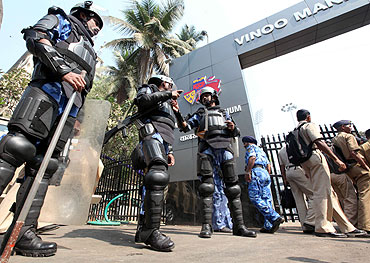
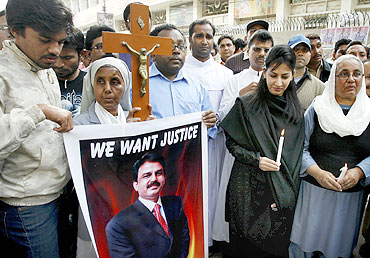
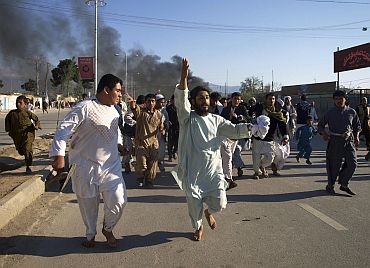
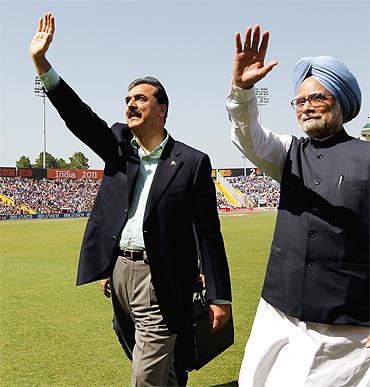
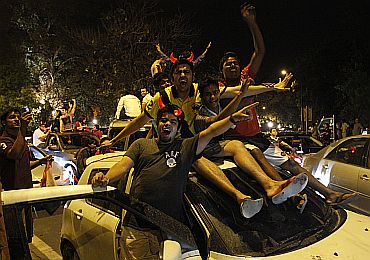
article